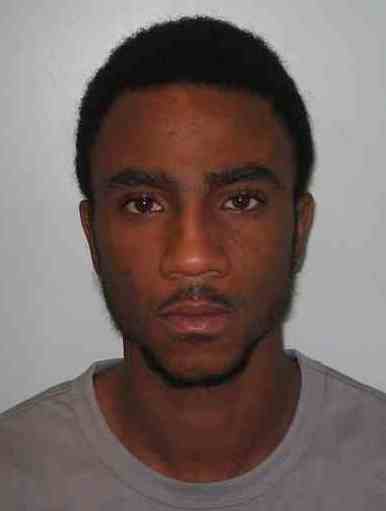Jae’don Fearon was ten years old when his father was shot dead.
He was asleep in bed that night in April 2003 when gunmen opened fire on an Audi TT driving away from a nightclub in Clerkenwell, east London. The front passenger, 26 year-old father-of-two Jason Fearon, was found slumped in his seat with a single bullet wound to the head. The case remains unsolved but detectives believe that he was the unintended victim of a gangland shooting.
At the funeral Jae’don Fearon gave a speech – which was filmed and shown on TV – vowing that his father’s death had made him more determined to become a professional footballer and a father figure for his younger sister.
The speech was used in an anti-crime video and Jae’don became a spokesperson for the Mothers Against Guns group. He was awarded a Woman’s Own Children of Courage award and met Tony Blair and Prince Charles and was still campaigning against gun crime in 2006, aged 13.
Tragically Jae’don failed to uphold the vow he made as a young boy to stay out of trouble.

In 2011, aged 18, he found himself driving around in a car with Rory Gordon, a 20 year who made a living dealing cannabis and stealing luxury cars to order for criminals. The plan was for Gordon to take the car from its owner, by force if necessary, while Fearon sat in the getaway vehicle. Once Gordon had seized the vehicle, Fearon would follow him to the edge of Epping Forest where the car was to be left for collection.
Their payment for carrying out the carjacking was to be £1,000.
It was the misfortune of 32 year-old businessman Harjinder Singh Bhurji to be driving the car they wanted, a black Mercedes SLK. While Fearon waited nearby, Gordon confronted Mr Bhurji and demanded the keys. When Mr Bhurji insisted he did not have them, Gordon stabbed him in the chest. The injury proved fatal and Mr Bhurji bled to death at the side of the road in Ilford, east London, as Gordon drove away in the Mercedes.
The police investigation quickly identified Gordon and Jae’don Fearon as the suspects but it was not until July 2013 that they had gathered enough evidence to charge the pair with murder.
In April 2014 – eleven years after his father was murdered – Jae’don was convicted of the lesser charge of manslaughter by the jury, reflecting his role as the ‘backup’ rather than the killer.
Having learned of Jae’don’s background during the case, the judge sentencing him said: ‘You know well the devastating effects of losing a loved one at the hands of a violent criminal.’
Jae’don was jailed for 13 years.